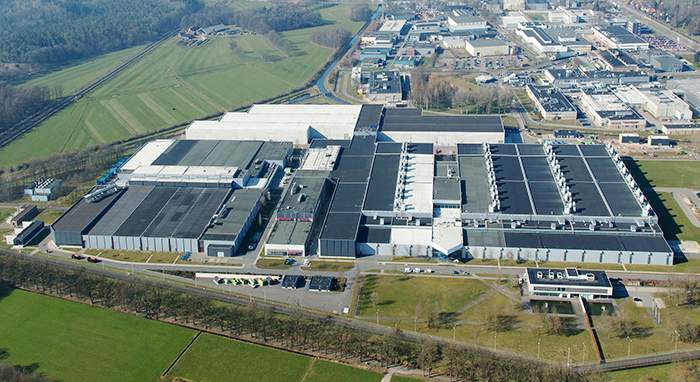 Uranium enrichment company Urenco has dramatically accelerated its net zero roadmap with a pledge to hit net zero for scope 1 and 2 emissions by 2030. This is a full decade ahead of its previously announced plans for scope 1 and 2 net zero by 2040.
Uranium enrichment company Urenco has dramatically accelerated its net zero roadmap with a pledge to hit net zero for scope 1 and 2 emissions by 2030. This is a full decade ahead of its previously announced plans for scope 1 and 2 net zero by 2040.
“At COP26 we did announce our goal to achieve carbon net zero by 2040, 10 years in advance of the global commitments to 2050. Since that time we’ve done a lot to develop our approach and a roadmap and as a result we are planning to further substantially reduce our carbon impact by 2030,” Dave Sexton, chief operating officer, tells NEi.
“The majority of our scope 1 and 2 emissions are from the use of electricity and at one of our sites its supply comes solely from dedicated nuclear power,” says Sexton, adding: “At all of our sites we are looking at shifting over time to green energy sources, which we believe does include nuclear power”.
Among a wide range of measures the company is adopting to curb emissions, it has switched to LED lighting at its facilities and has reduced the voltage in the power supply for its gas centrifuge equipment to cut their power demand.
In addition to contracting renewable energy supply, Urenco is also developing on-site solar PV installations at some of its facilities where suitable space is available and is targeting other diverse areas of energy use such as heating, transport and even employee travel.
The company’s scope 1 and 2 emissions currently account for about half the total associated with the production of enriched uranium but Urenco is also working within its supply chain to help achieve reductions in scope 3 emissions too. It is targeting about a 30% reduction in its scope 3 supply chain sector by 2030 with a view to hitting net zero in its scope 3 contribution by 2040. Where Urenco makes direct purchases of uranium ore, feed, or other materials this will be counted entirely within those Scope 3 emissions. When the feed comes from a Urenco customer, the third party will account for it in their Scope 3 emissions.
Progress on Scope 3 emissions and sustainability will be assessed by independent sustainability ratings organisation EcoVadis which are working with Urenco suppliers and getting them up to speed and monitoring them on emissions and overall sustainability. Separately, Urenco has asked EcoVadis to assess the organisation in terms of overall sustainability. “We have a commitment to have our 2030 near term targets validated by the Science Based Targets Initiative, to evaluate progress. Our annual disclosure to CDP demonstrates our evolving commitment to net zero and performance against targets. We’ve done quite a bit of work already, but we are formally committing to really driving and accelerating our targets well beyond 2050 and even 2040,” Sexton adds.






